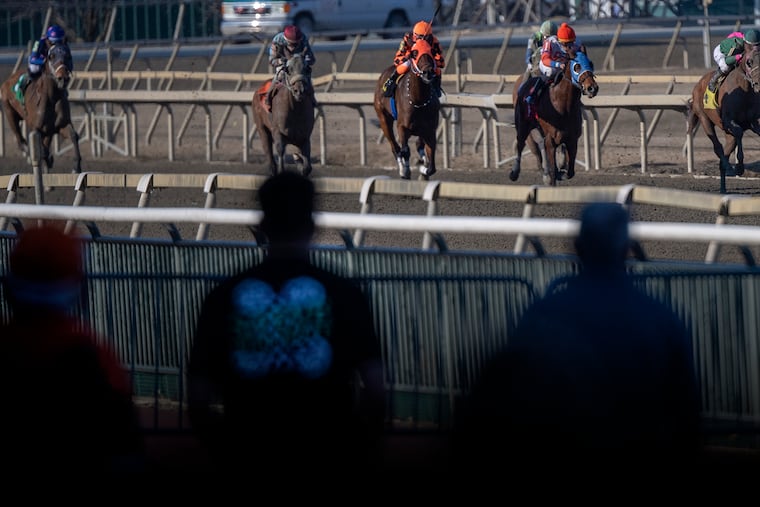How long must Pennsylvania prop up a dying racehorse industry? | Editorial
Lawmakers continue to financially prop up an eroding industry that needs to be put out of its misery.

Welcome to Pennsylvania, the animal welfare state. By that, we definitely do not mean a state devoted to the well-being of animals, but rather, one that has created a massive $3 billion subsidy program for the owners of racehorses. The money props up an industry that is not only failing but is responsible for the deaths of more than a thousand horses in the past 10 years.
According to a recent Inquirer report, since 2010, 1,400 thoroughbred horses have died — most following injuries, exacerbated by a widespread practice of doping. Horses are often drugged to mask injuries, a cruel practice designed to squeeze as much performance out of them until they must be put down or they drop dead.
» READ MORE: Betting on horses' lives
These deaths are on the heads of horse owners and trainers, but state lawmakers share some blame. By continuing to financially prop up an eroding industry that needs to be put out of its misery, lawmakers have practiced their own form of doping.
They began doing so in 2004, when they legalized gambling and created the Race Horse Development Fund to channel revenues from slot machines to the racehorse industry. Almost every year since, about $250 million has gone to the industry. (Revenues also go to property tax reduction.)
This fund was created with no accountability or checks and balances to ensure this actually was a wise investment. Rather than being revitalized, the industry has been in decline every single year since; so have the number of wagers, races, horses, purses paid, and the attendance at tracks. Meanwhile, the pressing needs of the actual humans in the state have grown.
Lawmakers have not only kept those checks coming without questions but continue to expand gambling with little regard for outcomes.
The state expanded from slots into table games in 2010, and in 2017, further expanded gaming into truck stops, airports, and online outlets. Pennsylvania is second only to Nevada in gambling activities. Since Pennsylvania’s slot parlors opened, gamblers have fed $366 billion dollars into those machines, representing $29 billion in revenue to the state.
» READ MORE: With LIVE Casino open, it's time to reconsider how we divvy up gambling payout
This year, Gov. Tom Wolf proposed diverting $200 million from the Race Horse Development Fund to help fund the education of actual human beings. The outcry from the horserace industry was predictably shrill. The response from the legislature was predictably silent.
The horse fund is the state’s single largest economic incentive program, according to a recent report by Education Voters. That report also points out that many of the benefits go out of state, with at least 50% of purses to horse owners flowing out of state. The main audience for racing is also out-of-state gamblers. Just 8% of those wagering on races at Pennsylvania tracks are Pennsylvanians. And only a fraction of the jobs the industry likes to tout is full time.
The true culprits here are state legislators, who concoct these programs and then turn a blind eye to what kind of impact they actually have. Being so generous to the racehorse industry has always been questionable. But now that it’s clear that it’s also deadly, how can it be allowed to continue?